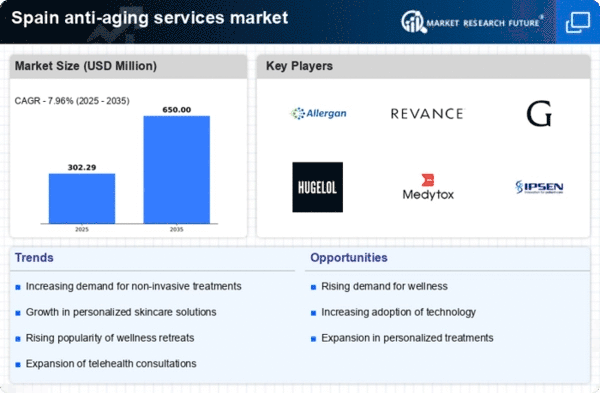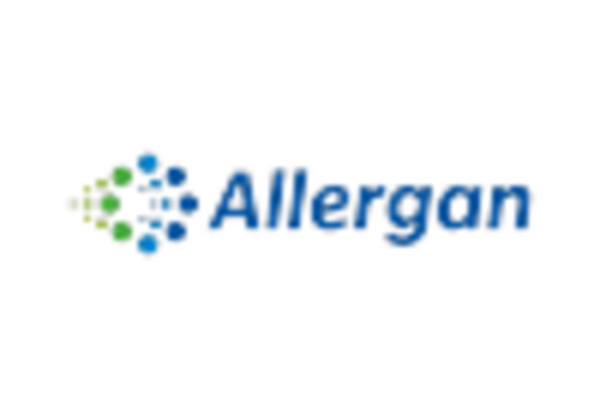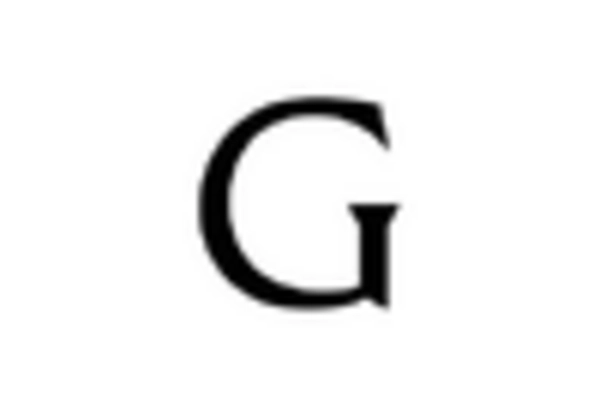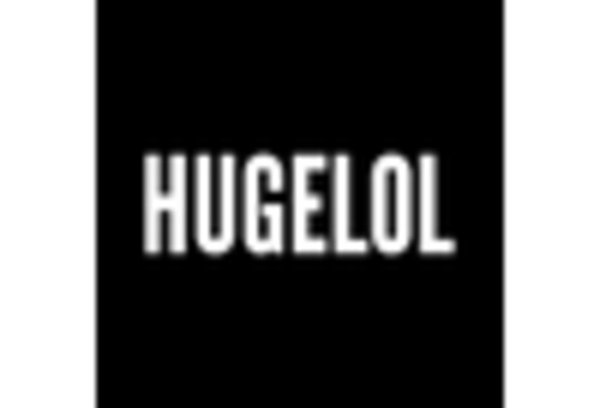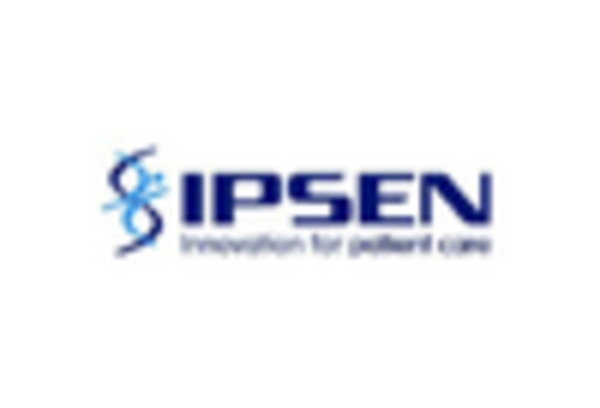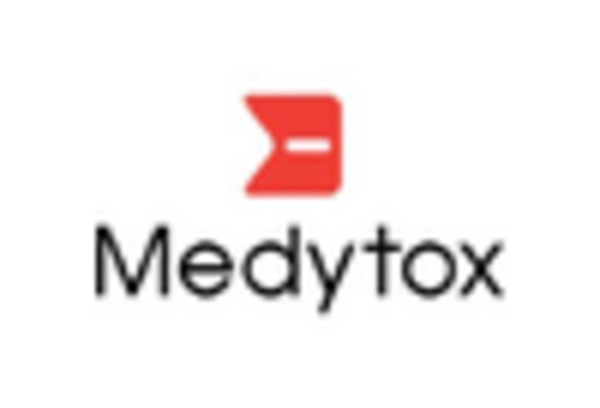Rising Disposable Income
The increase in disposable income among the Spanish population is a significant driver for the anti aging-services market. As economic conditions improve, more individuals are willing to invest in personal care and aesthetic treatments. Reports indicate that consumer spending on beauty and wellness services has risen by 10% in the past year, reflecting a growing trend towards prioritizing self-care. This financial capability enables consumers to seek out premium anti aging services, thereby expanding the market. The anti aging-services market is likely to benefit from this trend, as higher disposable income allows for greater expenditure on advanced treatments and products. Consequently, service providers may enhance their offerings to cater to this affluent demographic, further stimulating market growth.
Increasing Aging Population
The demographic shift towards an older population in Spain is a primary driver for the anti aging-services market. As life expectancy continues to rise, the demand for services that address age-related concerns is likely to increase. In 2025, approximately 20% of the Spanish population is projected to be over 65 years old, creating a substantial market for anti aging services. This demographic trend suggests that more individuals are seeking solutions to maintain their youthfulness and vitality. The anti aging-services market is thus positioned to cater to this growing segment, offering a range of treatments and products tailored to the needs of older adults. The increasing awareness of health and wellness among this age group further fuels the demand for effective anti aging solutions.
Focus on Preventive Healthcare
The trend towards preventive healthcare is increasingly influencing the anti aging-services market. Consumers in Spain are becoming more proactive about their health and appearance, seeking services that not only address existing concerns but also prevent future aging signs. This shift in mindset is driving demand for anti aging treatments that promote long-term skin health and vitality. The anti aging-services market is adapting to this trend by offering a variety of preventive solutions, including skincare regimens and lifestyle consultations. As individuals prioritize prevention over treatment, the market is likely to see a rise in the adoption of these services, reflecting a broader societal shift towards holistic health and wellness.
Technological Advancements in Treatments
Technological innovations in the field of aesthetics and dermatology are significantly impacting the anti aging-services market. The introduction of advanced laser therapies, radiofrequency treatments, and non-invasive procedures has transformed the landscape of anti aging services. In Spain, the market has seen a surge in the adoption of these technologies, with a reported growth of 15% in the last year alone. These advancements not only enhance the effectiveness of treatments but also improve patient safety and comfort. As consumers become more informed about the benefits of these technologies, the anti aging-services market is likely to experience further growth. The integration of technology into service offerings allows providers to deliver personalized and effective solutions, thereby attracting a broader clientele.
Increased Awareness of Aesthetic Treatments
There is a growing awareness and acceptance of aesthetic treatments among the Spanish population, which serves as a crucial driver for the anti aging-services market. Educational campaigns and social media influence have played a pivotal role in demystifying these services, making them more accessible to a wider audience. As individuals become more conscious of their appearance and the options available, the demand for anti aging services is likely to rise. The anti aging-services market is experiencing a shift in consumer perception, with more people viewing these treatments as a standard part of personal care rather than luxury services. This cultural change could lead to an increase in service uptake, thereby expanding the market.


